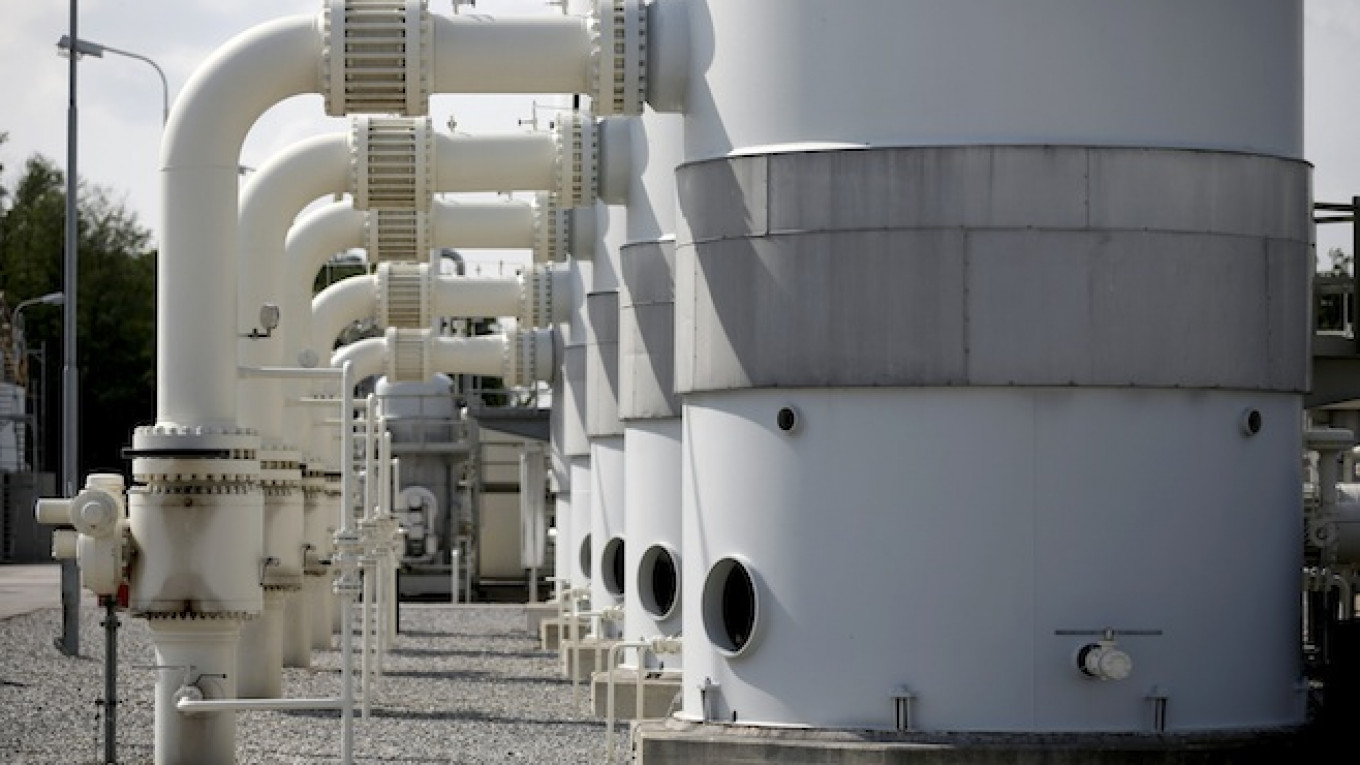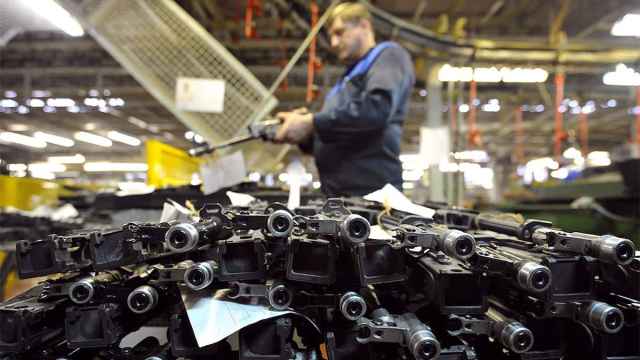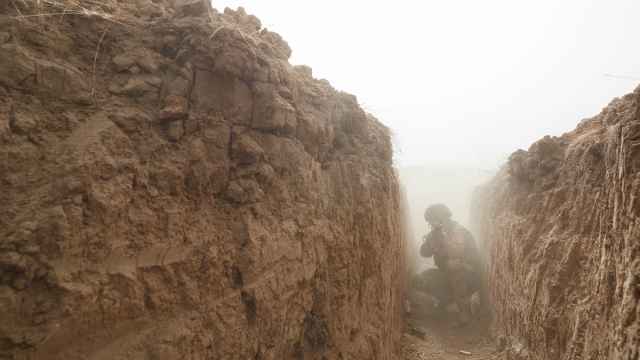Russian pipemakers are benefiting from the standoff between Russia and the West, receiving multi-billion-ruble orders as work on new pipelines to Europe and Asia is fast-tracked, the owner of trading firm PIT has said.
Gazprom has accelerated work on the South Stream natural gas pipeline, which will carry gas to Europe bypassing crisis-hit Ukraine, while work has begun on the Power of Siberia pipeline to China — the result of Russia's pivot towards Asia as relations with the West have cooled.
Russian steel pipe producers including Severstal and ChelPipe, which together spent around $12 billion on new capacity in 2000-2012, now stand to reap the reward at a time many other firms are struggling with a tough business climate and an economy at near-standstill.
"This is the only industry that is on the rise. We see a sharp increase in supplies in 2015 and 2016. Profit will rise … Indirectly, this is a result of the sanctions," Ivan Shabalov of Pipe Innovation Technologies' (PIT) told the Reuters Russia Investment Summit.
Shabalov said demand from Gazprom for large-diameter pipe (LDP) would be 1.2 million tonnes this year, while in 2015-16 this would grow to 2 million tonnes per year — good news for the pipemakers, whose LDP capacity has been underutilized at about 36 percent this year.
South Stream, which will cost an estimated $40 billion, is designed to carry Russian gas to the centre of Europe. The project has yet to be approved by the European Union, which is trying to become less dependent on Russian gas, but the Russian side is confident it will go ahead.
"It [he project] has been frozen because of politics, but at the moment Europe does not have viable alternatives," Shabalov said.
About half of Russian gas exports to Europe flow via Ukraine, and months of conflict and a fragile cease-fire have spurred work on gas projects such as South Stream, whose routes to Europe bypass the country.
While Shabalov did not discuss the value of potential deals, in July a tender for pipe supplies to one stretch of the Southern Corridor link to South Stream was worth $1 billion.
Following Russia's annexation of Ukraine's Crimea in March and Western sanctions in response, Moscow embarked on a strategic shift towards Asia, signing trade and business agreements, including a 30-year gas supply deal with China.
Construction of the giant Power of Siberia pipeline, which will start shipping $400 billion worth of gas to China by 2019, began in September, and only Russian firms are likely to participate, Shabalov said.
"Foreign suppliers will not be involved in the Power of Siberia," he said, adding that ChelPipe would have a logistical advantage over other Russian firms in supply terms. ChelPipe's production is particularly focused on LDP.
Infrastructure spending on the project is expected to be more than 770 billion rubles ($20 billion).
Bad Atmosphere
While a boon to Russian pipemakers, worsening relations between Russia and the West are not good news for business in general, Shabalov said.
"I don't believe those people who talk about the sanctions' positive effect on internal development. If someone can only grow under sanctions, it's not good. There's a bad atmosphere," he said.
"Taxes are changing, credit provision and state bank support are being discussed, tariff policies are being revised. We've crossed into a period of instability. Companies do not know what to budget for next year. In business you need to be able to look ahead and at the moment nobody knows what tomorrow will bring."
As credit conditions worsen, pipemakers are optimizing costs and building contingency plans in case further sanctions impact their supply chain, Shabalov said.
"There are many ways to avoid sanctions, for example by buying the same items, but in different countries. Of course this leads to a certain increase in costs and possible questions about quality," he said.
Russia's top steel pipemakers are TMK, United Metallurgical Company (OMK), Severstal and ChelPipe.
A Message from The Moscow Times:
Dear readers,
We are facing unprecedented challenges. Russia's Prosecutor General's Office has designated The Moscow Times as an "undesirable" organization, criminalizing our work and putting our staff at risk of prosecution. This follows our earlier unjust labeling as a "foreign agent."
These actions are direct attempts to silence independent journalism in Russia. The authorities claim our work "discredits the decisions of the Russian leadership." We see things differently: we strive to provide accurate, unbiased reporting on Russia.
We, the journalists of The Moscow Times, refuse to be silenced. But to continue our work, we need your help.
Your support, no matter how small, makes a world of difference. If you can, please support us monthly starting from just $2. It's quick to set up, and every contribution makes a significant impact.
By supporting The Moscow Times, you're defending open, independent journalism in the face of repression. Thank you for standing with us.
Remind me later.






